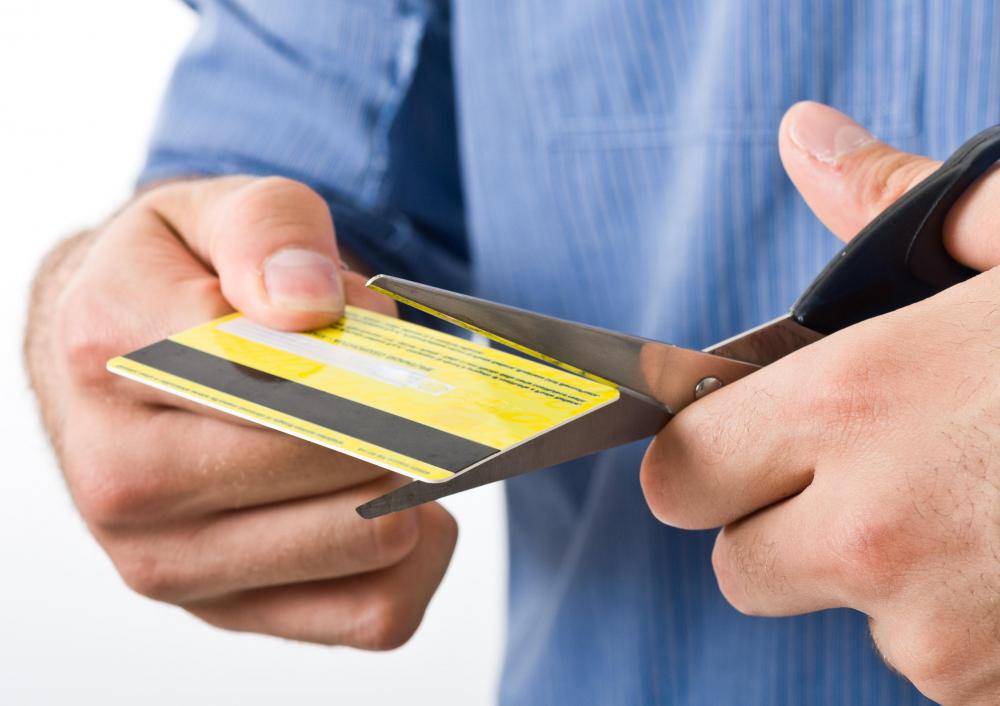At SmartCapitalMind, we're committed to delivering accurate, trustworthy information. Our expert-authored content is rigorously fact-checked and sourced from credible authorities. Discover how we uphold the highest standards in providing you with reliable knowledge.
What is a Credit Rating?
A credit rating is a simple number which many lenders use to determine whether or not they will give a loan or line of credit to an individual. It is is impacted by a number of factors, some of which are controllable, others of which are not.
There are three main agencies lenders go to in order to acquire an individual's credit rating: TransUnion, Equifax, and Experian. Many lenders get two or more reports, as details may differ among the agencies. Opinions differ as to which of the agencies is the best or most accurate, with factions holding strong opinions on both sides for all three of the major agencies.

The formula used by these three agencies is known as FICO, named after the Fair Isaac Credit Organization, one of the first companies to begin using credit ratings in the 1950s. A FICO score is a number ranging from 300 to 900, and roughly approximates the risk an individual poses to a lender. A rating of 300 is considered extremely high risk, while 900 indicates virtually no risk.

The FICO score is calculated based on the percentage of your total credit you are currently utilizing (approximately 30% of the FICO score), how long you have had lines of open credit (15%), the types of credit lines you have (10%), how large your past lines of credit have been (10%), and your number of delinquent payments (35%).
As a rule of thumb, a credit rating around 500 is high enough risk that many lenders will refuse a line of credit, and those that do grant one will penalize the borrower with high interest rates and difficult terms. A rating above 850 will grant the lowest possible interest rates and a very small down payment where applicable. One of over 650 is good enough to get favorable terms and virtually always be accepted for new lines of credit.

Many organizations offer online access to your credit rating. These sites offer reports from all three major agencies, detail why your score may be low, and offer suggestions for how to improve it. This ready access to credit information has led to the emergence of many online forums and communities in which members encourage and assist one another in raising their ratings.
AS FEATURED ON:
AS FEATURED ON:















Discussion Comments
When credit scores were created, we lived under a different lifestyle. We were not paying for tv and cell phones and increase on rents and mortgages, yet we are held to the same standards.
No one addresses why the lowest credit scores gain such high interest rates when apparently they are struggling and need the help.
After the bailout, some should have gotten the same bailout, but continued to be denied. Even the government received a bailout.
What does it mean if your credit report doesn't have a score?
i was given a alpha score on a loan of 8. what does that mean on a credit rating.
What are the score numbers that equal to alpha rating? LBBB-
@post#1 - yes your credit score is important and can have a big impact on your financial life. But don't forget that people have control, albeit indirect control over their credit scores.
if you pay off your debt religiously, and do not take more debt than you can handle, you will get solid score.
there are also some tricks to improving your credit rating, like asking for credit increases from your credit card companies every 6 months. they usually grant those requests, and it increases the total amount of credit that you have access to. it seems a little counterintuitive, but this is actually good for your score because it drops your credit utilization (the percent of available credit that you actually use). a low credit utilization is considered to be a good thing by the credit rating agencies.
What are the score numbers that equal the Alpha rating?
A+, A, B, C
It is fascinating to me that your credit score can so directly affect so much of our lives now. Everyone worries about their credit score (although I'm not sure how many people actually know theirs) and wonders how their credit scores will affect their life, their finances, purchasing a car or a house... that one number really can affect a lot of things, especially when you think about the fact that credit card fraud and identity theft are really common.
Post your comments